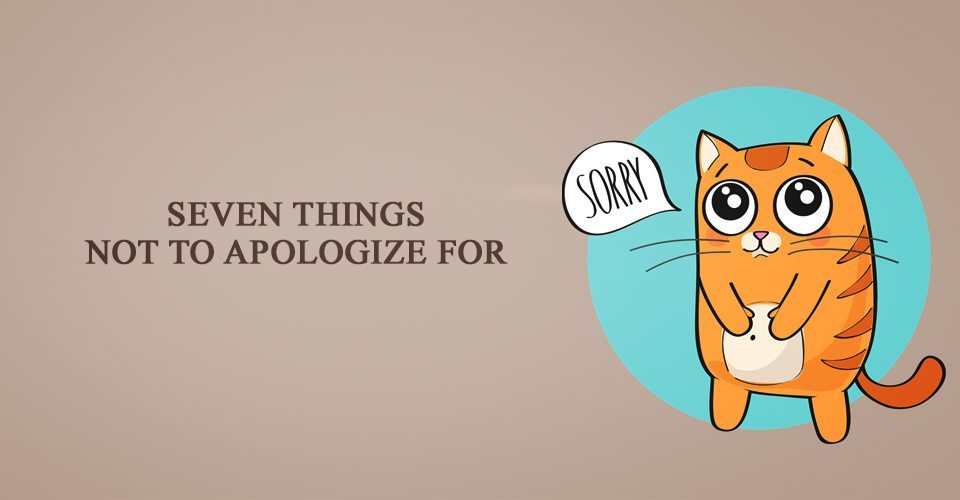Many people find themselves saying “I’m sorry” for things that should never in a million years require an apology – such as declining plans or asking for help.
Women are especially guilty of this. How often do you witness a woman apologizing for speaking, feeling, or basically just daring to exist? When we apologize for something like having a preference, voicing an opinion, or even having an allergy, we are telling ourselves and the world that who we are is not okay. This can be damaging to our self-image and self-esteem. It can also tell others that it is okay to disregard us.
After all, our opinion is so insignificant that we are apologizing for even having one!
This is a habit that all people need to lose.
How often do you apologize automatically for these things?
1. “Sorry, I don’t know the answer to your question.”
It’s okay not to know things. Try saying something affirmative and accepting instead. “That’s a great question! I’m not sure of the answer, but I can look it up for you. Actually, Jessica might know…” Helping the other person to find the answer is far more productive than pretending to be sorry you don’t have it.
2. “Sorry the house is such a mess!”
I say this all the time, when in reality I cleaned right before they came over. Even if my house really were a mess, who should care? Children and dogs live here – and so do I. I have a right to keep my house in whatever state I like, and I need to reject the idea of keeping it immaculate for the viewing pleasure of strangers.
3. “Sorry, I’m not really a dog/cat/baby person.”
You don’t have to be.
4. “Sorry I’m so tired.”
If you are tired because you woke up early, went for a run, worked all day, coached your daughter’s soccer practice, made a tasty and nutritious meal, and then swept the kitchen floor, you deserve a medal – not a guilt trip. Being too tired to wash the dishes is not a crime. They can wait in the sink for tomorrow.
5. “Sorry, but I disagree.”
This overused expression actually has the opposite of it’s intended effect. Apologizing for a disagreement carries more conflict and awkwardness than simply voicing your difference of opinion with confidence. By apologizing, you imply that something is wrong with having different viewpoints, and that one of you is incorrect. Leaving out the “I’m sorry” more clearly communicates that disagreement is natural and acceptable.
6. “Sorry, but I need some help.”
It is more than okay to need assistance – we all do from time to time. By apologizing for this basic human need, we are telling others that it is not acceptable to ask for help. For example, an onlooking child might get the idea that doing so is shameful. Ask for help with gratitude and pride. Encourage others to do the same.
7. “I’m sorry, I’m just so excited/angry/proud/sad/anything, really.”
Don’t apologize for having a feeling. You are a human, and not a robot. This is another apology that sets a bad example for others by stigmatizing a basic and universal aspect of being a person.
“Never apologize for showing your feelings. When you do, you are apologizing for the truth,” wrote José N. Harris in MI VIDA: A Story of Faith, Hope and Love.
Don’t apologize for being authentic and human. Don’t apologize for being yourself.
Save your apologies for the things that really matter – hurtful words, unkind actions, and cruel jokes. They’ll mean more when they are truly necessary.



